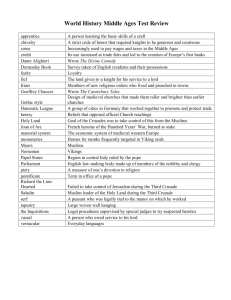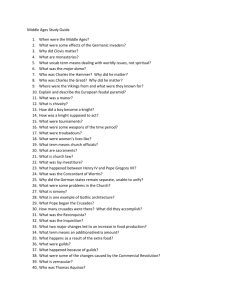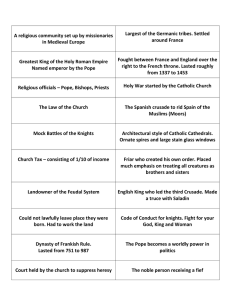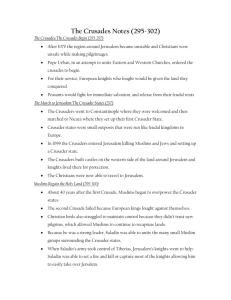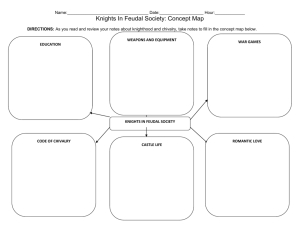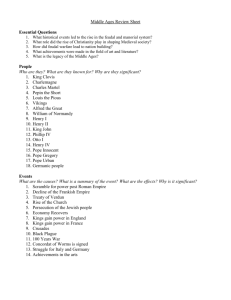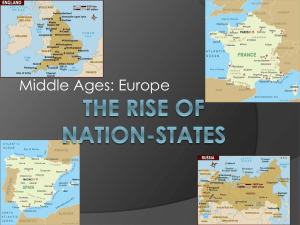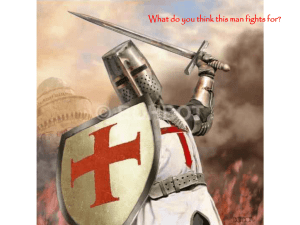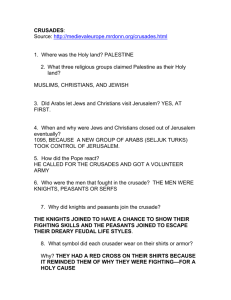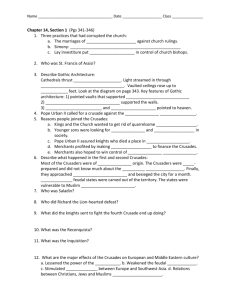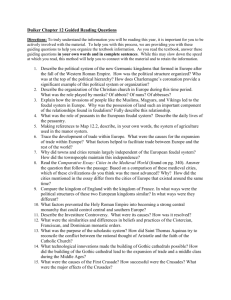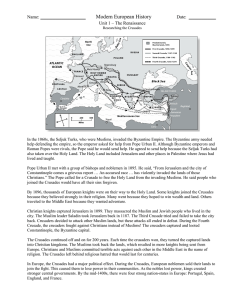Church Reforms, Crusades & Medieval Society Notes
advertisement
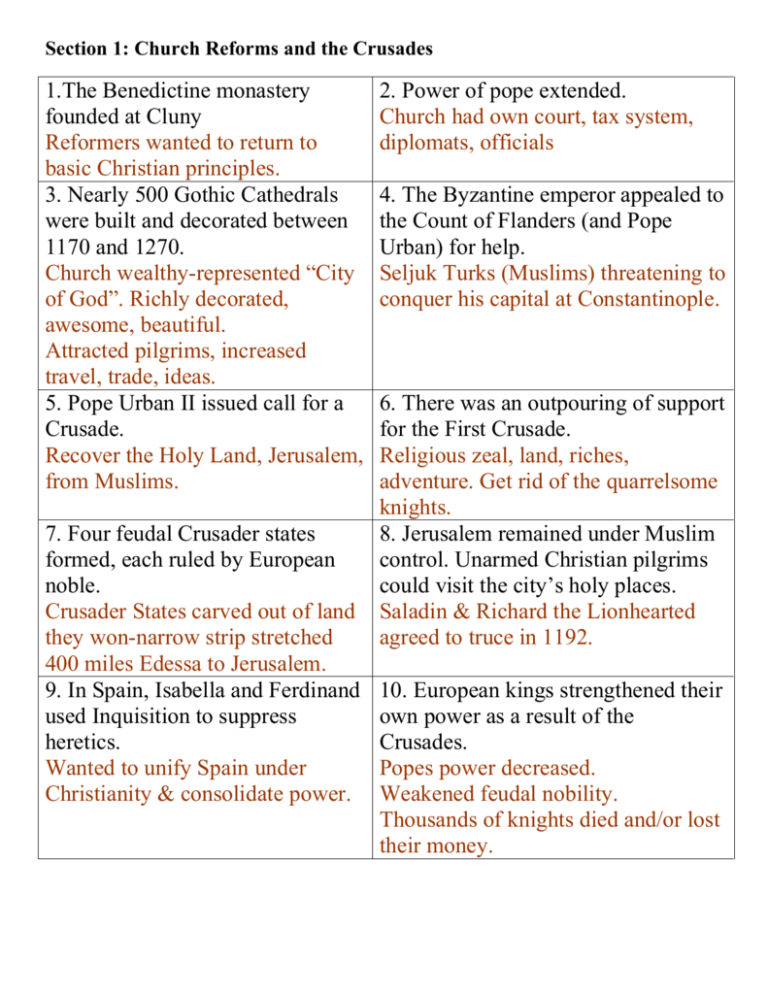
Section 1: Church Reforms and the Crusades 1.The Benedictine monastery founded at Cluny Reformers wanted to return to basic Christian principles. 3. Nearly 500 Gothic Cathedrals were built and decorated between 1170 and 1270. Church wealthy-represented “City of God”. Richly decorated, awesome, beautiful. Attracted pilgrims, increased travel, trade, ideas. 5. Pope Urban II issued call for a Crusade. Recover the Holy Land, Jerusalem, from Muslims. 7. Four feudal Crusader states formed, each ruled by European noble. Crusader States carved out of land they won-narrow strip stretched 400 miles Edessa to Jerusalem. 9. In Spain, Isabella and Ferdinand used Inquisition to suppress heretics. Wanted to unify Spain under Christianity & consolidate power. 2. Power of pope extended. Church had own court, tax system, diplomats, officials 4. The Byzantine emperor appealed to the Count of Flanders (and Pope Urban) for help. Seljuk Turks (Muslims) threatening to conquer his capital at Constantinople. 6. There was an outpouring of support for the First Crusade. Religious zeal, land, riches, adventure. Get rid of the quarrelsome knights. 8. Jerusalem remained under Muslim control. Unarmed Christian pilgrims could visit the city’s holy places. Saladin & Richard the Lionhearted agreed to truce in 1192. 10. European kings strengthened their own power as a result of the Crusades. Popes power decreased. Weakened feudal nobility. Thousands of knights died and/or lost their money. Section 2 Changes in Medieval Society 1. Farmers began using a new type of harness that fitted across a horse’s chest. 2. Using the 3-field system, farmers began to grow crops on 2/3rds of their land each year, rather than ½. 3. Merchant and craft guilds organize and change ways to do business. 4. The Commercial Revolution changes trade and banking practices. 5. As trade blossomed and farming methods improved, the population of western Europe rose from around 30 million to about 42 million between 100-1150. 6. As people left life on the manor for life in towns, they challenged the traditional ways of feudal society in which everyone knew their place. 7. Authors began writing in the vernacular. Horses replaced oxen fro plowing and pulling wagons. Food production increase= Population increase Guilds gain power/influence: Socially, politically and economically. More goods available, new trade routes, banking gains importance. Towns grew and flourished People moved to town to pursue economic and social opportunities. Writers brought literature to many-most could not read Latin. 8. Growing trade and growing Universities, scholarship and cities brought new interest in students arose in Western learning. Europe. 9. Christian scholars from Europeans acquired huge new Europe visited Muslim body of knowledge libraries in Spain, and Jewish scholars translated Arabic copies of Greek writings into Latin.
